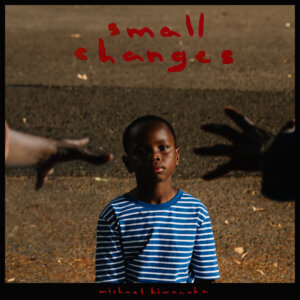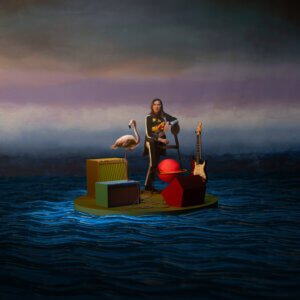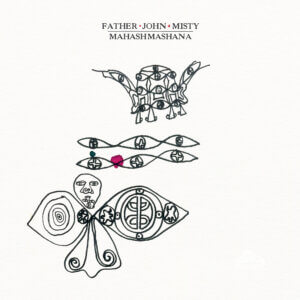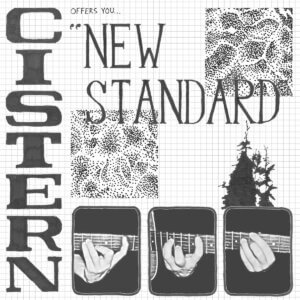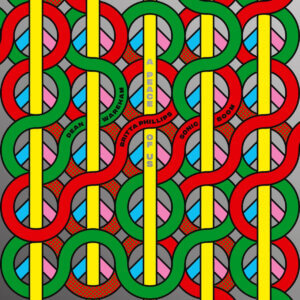Pål Espen from Maribel
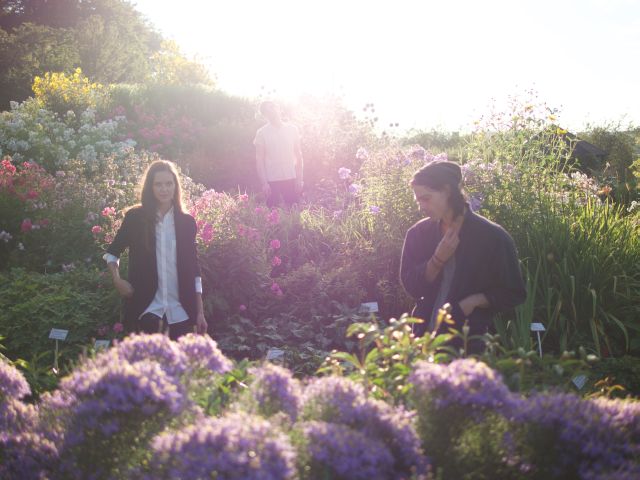
Pål Espen, the one constant of the dreamily atmospheric and tumultuously psychedelic band Maribel, may hail from Norway, but he eschews being labeled geographically, as well as sonically. As Pål succinctly puts it, it’s for the listener to find out. So toss off the dream-rock/pop tag and just revel in the hazy daze of Maribel’s captivating sound and read more about Pål’s insightful views on being an artist, his creative process, and Maribel’s new album Dirty/Clean.
Northern Transmissions: Hei Pål! I’m thrilled to be interviewing you for a second time! The first was for Adequacy.net in 2010. You will soon be releasing your third full-length, Dirty/Clean. When is its exact release date and will it be distributed by a record label?
Pål : Hei. Thank you, Jen. Much appreciated. Dirty/Clean was just released in Norway through the label Su Tissue Records. We are still looking for labels outside of Norway for an international release. A couple of songs are available worldwide through our SoundCloud page though.
NT: It’s a bit of a mystery as to the member line-up of the band these days, so how about if we clear that up? Who plays what instruments and sings currently and do the same members appear on Dirty/Clean?
P: MARIBEL is not really a band. At least not in the traditional sense. It was never intentional, but that’s the way things have turned out. Eirik Asker Pettersen is the newest member of the constellation. Both I (Pål Espen) and Rebekka are doing vocals on the record, Carmen Villain features on several tracks, and our friend Emilie Lium Vordal does as well. Ådne Meisfjord’s (120 days/Serena-Maneesh) new project Tropical Contact High is involved on two tracks and he also mixed half of the record. They are all basically friends who were around when we were in the studio. I did most of the live instruments, except for the synth parts and the programming which Eirik did.
NT: What are the distinguishing features of Dirty/Clean that differentiate it from your previous two albums? Is it more pop-oriented or rock-leaning – or something else entirely? From what I’ve read, you included audio samples on many of the new songs.
P: Something different, I hope! But I’d like to think there is a continuing thread… Still dreamy, still pop-oriented, still complex. Maybe Dirty/Clean is more colorful than the previous records? Music is hard to put into words, especially your own music. But using samples made a huge difference on how the songs came to life. The whole process was very different from previous attempts to make music.
NT: What was the recording process like for Dirty/Clean?
P: Everything felt very accidental. Eirik had just moved to Oslo and we just started out experimenting with samples and beats in his home recording studio. There was no plan. Somehow it soon developed into song ideas and not long after, we realized it was turning into something that could be a full-length album.
In a way it felt like these songs were never written. It was more like trying to control chaos or trying to form chaos into structure. It felt like we were trying to make more or less arbitrary sounds and rhythms into music. Almost every song was arranged and finished while we were mixing the album. The recording process and the song-writing happened simultaneously so to speak. It was basically the same thing. It wasn’t planned. It just happened that way and it made everything very intuitive and free. It was like we had a mathematical problem we were trying to solve that didn’t have a right or wrong answer except for what our intuition told us there and then. And since we were mixing the album on an analog board, there was no really going back afterwards.
NT: The lead-off single “And Back In” has been released with an accompanying video which fits perfectly with the hazy, slo-mo, warped vibe of the song. Is “And Back In” representative of the rest of the songs on Dirty/Clean or is it a sonic one-off?
P: I think it’s quite representative. But the album is very complex. Every song is different from the next, but they all hang together sonically as well as aesthetically somehow. At least that’s the way I feel about it. Maybe they are tied together in the way they were all constructed: samples, loops, and beats. Then trying to arrange these different ideas and sketches around harmonies and melodies. Actually, the drums were added while mixing on “And Back In”.
When I am sitting on a plane sometimes the noise from the motor engines becomes harmonies, melodies, and even rhythms in my head. Dirty/Clean was a little bit like that, trying to capture melodies, harmonies, and rhythms that came out of the chaos we were making in the studio. It’s very imaginative. Your experience is that the songs are already there somewhere, floating around in space. But the truth is that they are all in your head. No one else can hear what you are hearing before you are able to translate your imagination “on paper”. It’s quite interesting. And it was very relieving to work that way.
Some songs ended up sounding very well-written with a well-defined pop structure, like “Said Your Name”. Other songs are looser and just flow with the imagination, like “Unnamed” which consists of several recorded tracks and samples put together to try to make them fit like Tetris or something, with Rebekka improvising a melody on top of it all. But every song felt like they came out of nothing.
NT: I think Carmen Villain contributes main vocals on “And Back In”. How did you connect with her and why didn’t Rebekka sing on this song?
P: It was like this: Whoever was around while we were mixing the album did the vocal parts. Rebekka was on vacation, I think. Carmen is a friend and I have played with her live band. It was easy to just ask her to do the vocals while we were working on it. I remember when we were mixing another song called “I Know A Place Where Crystals Grow”. I wrote the lyrics and the melody the day before. I tried to do the vocal tracks the day after, but it sounded awful. I phoned Carmen and asked her if she could stop by and sing on it. She hadn’t even heard the song idea before. She told me she had a hangover and wasn’t sure it would work out. But she came anyway, learned the melody and lyrics on the spot, and did a beautiful job. Her hangover voice was just perfect for the song. The way it almost breaks sometimes fitted the mood and the lyrics so well.
The melody and lyrics on “And Back In” just happened when I was sitting on a bus. I was listening to a guitar loop we had recorded. Actually, we just accidentally recorded it. My guitar was out of tune, but it didn’t matter because we were just testing a new effect pedal – a pitch faser. I started to play some made-up chords that I had been fooling around with at home and it sounded completely different with this weird tuning with that effect on it. Luckily we recorded those 12 seconds. I could never have come up with a hook like that naturally. And the lyrics just popped up in my head on the bus when I was listening to these seconds. It was a 10-minute ride. So were the lyrics. The next time I was in the studio, I picked up the bass and played those deep tones that were already there somewhere, probably because of the phase shifter effect on the guitar, and I added something here and there.
For me that’s the definition of beauty. Or art. That one moment. Those seconds. You reach out and you let it go in one motion. “And Back In” is my favorite song on the album, I think. But a lot of the songs happened that way.
NT: You were labeled early on in your musical career as part of the new generation of shoegaze bands, but you’ve stated that you were never really involved in that scene. If you did describe your music, what would name it: dream-rock, dream-pop, or something similar?
P: I guess so. Our music is quite dreamy and psychedelic. That’s what people say. And sometimes it turns into a nightmare. I haven’t given it a lot of thought. You make music; that’s pretty much it. Making music is a very personal and intimate process; either you like it or not. And the music reflects that, one way or the other. But I don’t care much for labeling music as a certain genre. That’s for other people to decide. For me it’s only alienating.
NT: What do you enjoy about being based in Norway? Do you feel like your geographical location has helped or hindered you as a band?
P: I don’t enjoy being based in Norway. And I don’t know if that’s a good or bad thing. I watched an interview with the electronic artist Actress on YouTube the other day and he said something I agree with. I really love his music by the way. It’s very inspiring. He said he appreciated when people actually made the effort and worked hard to get to know his music. I think he meant both physically and mentally. Actress is not easy listening. It takes time to get to know his music and to really appreciate it. Calling yourself Actress is not very Google-friendly either. You have to dig a little to find out about him and his music. But when you find it and take your time with it, you soon realize that he is special and unique. And you get so much in return for that little extra effort. It’s not so much to ask for, really, when you are an artist.
I miss that attitude towards music. I like to discover music by myself. I don’t need or want to be told what’s hot or not, etc…, etc…, or worse, because you get all that crap thrown in your face all the time now that everyone is so desperate for attention. It’s like a kindergarten out there. You are constantly being told that you must attract the audience’s attention because there is so much music going on and the music itself is not enough.
I mean, it feels like everything else is more important than the music. It’s really no discussion; the music suffers from it. And in the end, I believe the artist suffers as well. It should be the other way around. You, the artist, should demand something more from your listener. They should make an effort. And if they don’t still like it, that’s fair enough. An artist shouldn’t be happy being background music in some commercial.
My point is, I don’t think it really matters where MARIBEL is based. I hope people find out about us anyway. It’s up to them. That’s how I learn about music. I spend a lot of time of digging. Once in a while you find gold. And that makes it all worthwhile.
NT: You’ve been performing at various venues before the release of Dirty/Clean and I was wondering if you play a mix of old and new songs or just new ones. What is the audience reaction to your new tracks?
P: We play mostly new songs. When I’m done with an album, I look forward and try to make something new, something different, something that challenges me. Or else I get bored. We haven’t played live since the album was released, so it’s really hard to say. When you play new songs people haven’t heard before they seem insecure somehow. I don’t know why. Maybe it’s a Norwegian thing. People seem to enjoy “Said Your Name” though. Maybe because it was released as a single and then recognized. I don’t know.
NT: Who did the cover art for Dirty/Clean? Why did you choose that album title? Does it reflect a sonic dichotomy on the album where some songs are grittier versus smoother tracks?
P: It was made by our first drummer who also did the cover for Aesthetics.
About the title… I think it represents the opposite of a dichotomy. I don’t wanna get too philosophical about it. It felt right, basically. I felt it was the right title for what the album reflects, music-wise. Maybe it’s about that one motion again…
NT: Are there any films or other media that influenced the overall atmosphere of Dirty/Clean? Your previous album, Reveries, has a film noir ambience, so I was wondering what your new album is cinematically steeped in.
P: I watch movies all the time. Aesthetically, maybe the films (and music) by John Carpenter. The glory days of VHS. He’s a very inspiring man for many reasons. He always did his thing. Success or not.
NT: What else do you have planned in the near future? More video shoots or gigs or song releases?
P: The plan is to find an international label as soon as possible.
interview by Jen Dan
Latest Reviews
Tracks
Related
Sorry, we couldn't find any posts. Please try a different search.
Advertisement
Looking for something new to listen to?
Sign up to our all-new newsletter for top-notch reviews, news, videos and playlists.
